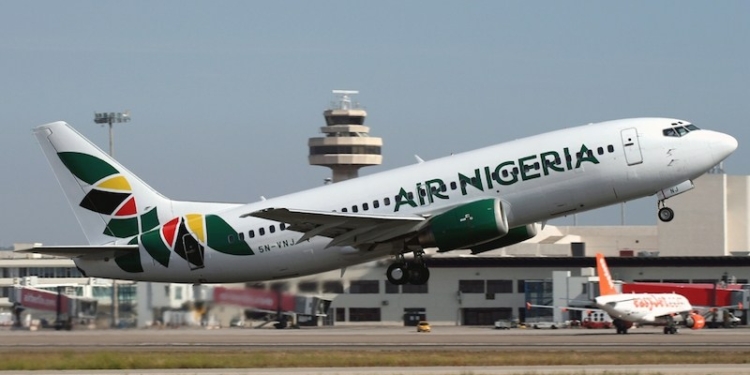By Philip Agbese
That Nigeria is proclaimed the giant of Africa is trite. It is a slogan which has reigned for decades. But in the last two decades, or more, Nigeria, the pride of Africa has been ludicrously derided and despised with various derogative sobriquets’, as “leaping, sleeping or crawling giant” of Africa.
Even among Nigerians, it is openly chuckled in leisure joints in a mood and feeling clearly detached from the love of country. Nigerians have been horror-struck at this unswervingly crumbling nation, which has refused to project itself as the true giant of Africa it ought to be, in leadership and development indices.
The harsh stroke notwithstanding, it also comes with the embarrassment of a lost dignity and pride of the nation, which is not lost to conscious minds. Those who mockingly interrogate the acclaimed giant status of Nigeria many not be necessarily wrong. At least, they have cogent reasons to so indifferently and inhospitably caricature the worth of their country.
Over the years, Nigeria has been enslaved to the sustained culture of dearth of development and decline, rather than progression in national assets and treasures. Years of mismanaged economy by a kleptomaniac political leadership have collapsed Industries/ companies and other national assets. In the public transport sector, it was embarrassing that the railways had gone and the famous Nigerian Airways completely extinct. Shipping transport was in complete disarray.
However, the return of President Muhammedu Buhari in 2015 as the political head of Nigeria came with a promise to change the narrative of negation to progression. And the President is casting every stone at the darkest spots which have snatched the glory of the nation and untying every knot or obstacle to rejuvenate Nigeria.
Again in 2018, the Buhari Presidency at the Farnborough International Airshow in the United Kingdom ( UK) London, unveiled a new national carrier, it re-branded as Nigeria Air. The re-launch of the Nigeria Air is coming 15 years after the Nigerian Airways became comatose and terminated commercial air operations due to mismanagement.
Private airliners and air carriers of other countries took over the commercial flight services of Nigeria, which were offered at rates, undeniably very exorbitant.
The excitement of Nigerians over the revival of Nigeria’s national carrier was captured by the words of the Nigeria’s Minister of State for Aviation, Mr. Hadi Sirika who thundered at the UK event that ; “I’m very pleased to tell you that we are finally on track to launching a new national flag carrier for our country: Nigeria Air.”
Sirika, a former pilot did a perfect underground work to berth the Nigeria Air. Even the choice of the rebranded name was the collective decision of Nigerian youths and students who were assembled to invoke their creative ideas to suggest the best suitable name for the Nigerian national carrier.
The adoption of the name Nigeria Air sounds simplistic, but has magically first, Nigerianized, Africanized and internationalized the national carrier as a proud asset of Nigerians. It is a perfect example of inclusive governance, which allows Nigerians decide what they desire.
One of the President’s media aide, Bashir Ahmad finely reflected the prevailing ecstasy of Nigerians on his Twitter handle as “And it’s Nigeria Air …Bringing Nigeria closer to the world,” a statement which attracted infinite eulogies from Nigerians.
The Nigeria Air, which is a Public Private Partnership (PPP) arrangement, has its logo depicted as an eagle, with Nigerian flag colours. It is slated to commence operations in December 2018, with the FGN owning 5 percent of the partnership deal. Nigeria is expected to invest an initial capital ranging from $150m (£115million) to $300milion in the first few years. It is targeted to parade about 30 aircrafts in its fleet, with a projection of ferrying about four million passengers in the next five years.
The return of the Nigerian national carrier is a relief in several ways. Aside the honour it has restored to the country, there are other multidimensional economic benefits, like boosting federal income through dividends on shares and the employment of scores of Nigerians for its services, which in itself is economic empowerment to the masses.
Furthermore, the intervention offered by the Nigeria Air would considerably reduce passenger- pressures presently mounted on existing carriers in the country. Reports certify that at the moment, airlines operating at Nigeria’s main international airports like the Murtala Muhammed International Airport, Lagos and the Nnamdi Azikiwe International Airport, Abuja are overstretched by the sheer volume of passenger traffic.
The report says, annually, Lagos Airport alone contends with eight million passengers; while Abuja struggles with another five million, an unhealthy situation, and aviation experts have decried as twice or thrice the capacities of existing carriers. Thus, the Nigeria Air would augment flight services, with the concomitant psychological feeling of enhance safety and efficient services to passengers.
An Aviation analyst, Ms Aderoju Omololu , in an e-mail to BBC was very positive on the bright prospects of the survival and flourishing of the Nigeria’s national carrier. She opined that with its anchorage on private entity operations and engagement of industry experts in its management, there is bright hope.
There is no manifestation of purposeful leadership greater than breaking unimaginable grounds, which offer solace to the people and confer pride and dignity on the masses as exemplified by President Buhari. The shame and dishonor that the giant Nigeria depend its commercial air operations entirely on private entities and foreign nations has been erased with the re-launch of the nation’s flight carrier.
It was extremely disreputable that smaller Africa countries like Ethiopia, Uganda, Tanzania and hordes of others, operated successful national carriers for years. Some of the countries were even contemplating expansion of aviation investments into other African nations; while Nigeria crumbled the Nigerian Airways and went to bed.
At least, an initiative has come to fruition and the reality of a Nigeria Air cannot be disputed even by ardent critics of the Buhari Presidency. Even those who doubted and ridiculed Nigeria, as a failed country or a nation confined to the fate of doom are having a rethink. They now realize the inappropriateness of classifying Nigeria as a giant eagle, without wings to fly.
It resonates with exhilaration that the Minister of State for Aviation Hadi Sirika has proved himself a public servant sensitive to the cravings and wishes of Nigerians. He has perfectly and convincingly demonstrated to Nigerians that he is not only very conversant with the “change mantra,” dictum, but indeed, the vision of the Buhari Presidency achievable.
Therefore, the Nigerian Air is a loud statement on his patriotic and impactful outing in the regeneration of Nigeria. As a retired pilot, his knowledge of aviation operations and experience in the industry are sure proofs of the sustenance and blooming of Nigeria Air for service of Nigerians and world.
This extraordinary imprint on development has no doubt, shocked critics of the Buhari Presidency, who least believed, “change” was also possible in the capital intensive aviation industry. But with a proficient technocrat, today, Nigerians have woken up to the excitement of a rebranded national carrier.
Only a visionary and competent public servant, who is not overwhelmed by the demands of his office, would post such a gargantuan feat within a short time. And the animation of Nigeria’s aviation industry would forever remain a patriotic outing, worthy of accolades for Sirika.
The appreciation is pictured from the indispensability of a vibrant aviation industry as one of the major planks of the international community’s physical engagement with Nigerians in multiple interactions and vice versa.
Agbese contributed this piece from the UK.






Discussion about this post